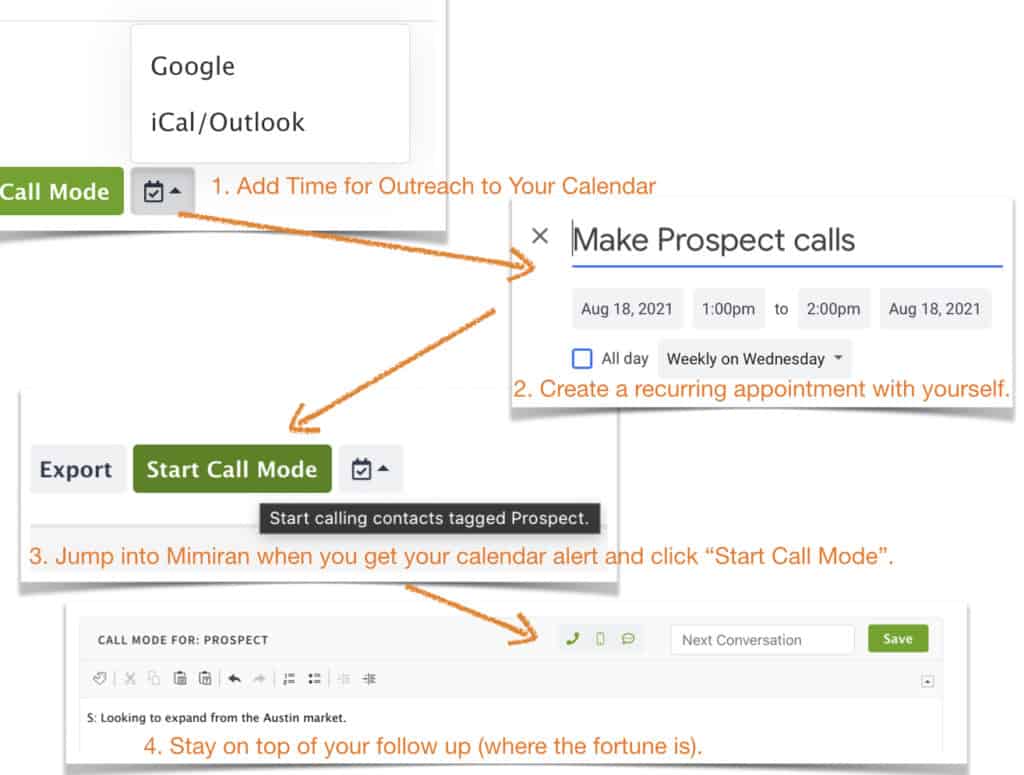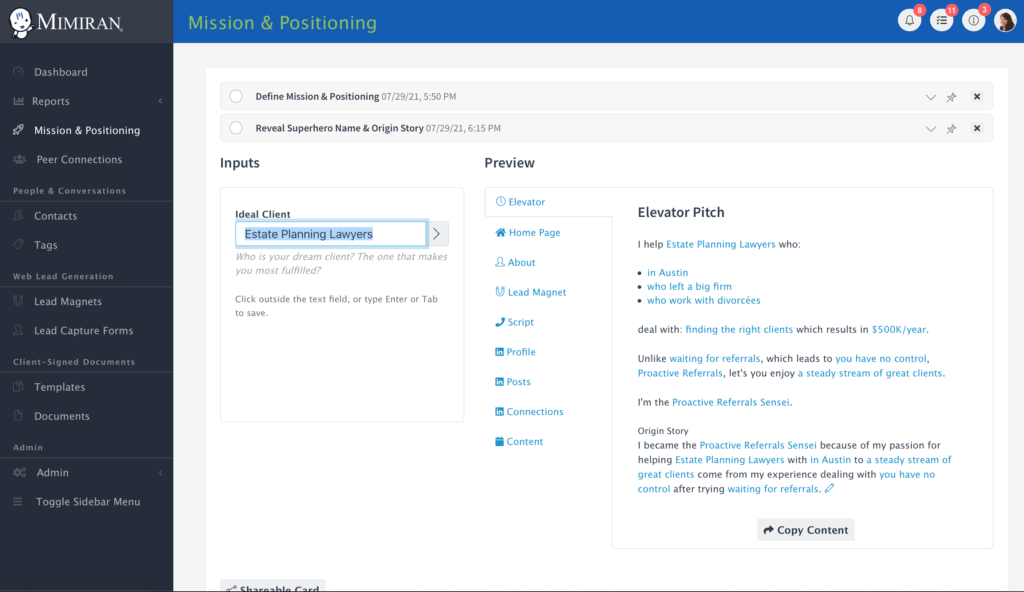Your title says Consultant on your LinkedIn profile, but what does the rest of your profile say? What about your website? Many consultants act like spies, hiding what they do, or doctors, who will tell you if you ask, but don’t seem to eager to share. Sometimes, desperation forces consultants into (used car) salesman mode.

So what is your real title?
🕵️Spy (you do amazing things, but no one knows about them and your online presence hides them– someone really has to dig)?
👩⚕️Doctor (you do great things, and some people know about them and your online presence gives some hint)?
🙌Consultant (you do great things, and your online presence makes it clear what you do and who you help)?
🤮Used car salesman (you are always bragging about yourself in person and online, without helping prospects)?
A lot of service-oriented people end up in the spy or doctor zone.
While you don’t want to be a used car salesman (hopefully), if you are a spy or a doctor, you will not only find it hard to get clients and make less money, you will help fewer people and make a smaller “dent in the universe.”
Moving from Spy to Doctor
If you’re deep undercover, let’s at least get you from spy to doctor:
- Make sure you have a website
- Update or create your LinkedIn profile
- Make sure both these sites make it clear who you help and what you do for them
- Is it easy for people to reach you if they want to?
- If you don’t feel great about prospecting directly, make sure you regularly keep in touch with referral partners (after all, these are the great sources of patients for doctors)

Moving from Doctor to Consultant
Build on the doctor foundation:
- Get crystal clear on who you help by defining the key characteristics within your general market that you do or don’t help. For example, instead of saying “Small Business Owners”, say “Owners of Construction Businesses in Texas who want to pass the firm to their children”. Don’t think of this in terms of “small vs large” markets, but as “easy vs hard” sales and marketing.
- Make sure your site, LinkedIn profile, and other digital real estate conveys your speciality, so a visitor can immediately tell “this isn’t for me” or “finally– where have you been all my life?!?”.
- Offer help to your ideal prospect right away. Provide insight and tips that will have the right person saying “this person gets it”. Just as importantly, people who look like a good prospect from 50,000 feet will understand that they are not in the right place and not waste your time.
- Provide one or more Lead Magnets to provide deeper value to your ideal clients, and turn visitors to leads and conversations– conversations focused on the prospect’s problem, not you or your solutions.

Avoiding the Salesman
It’s easy to see when someone else is being a sleazy salesman, but sometimes we can slip into that mode subconsciously, by prioritizing ourselves over our prospects and clients. Make sure your positioning focuses on the ideal client.
Where do you land? Where would you like to land?
(And if you need some ideas for lead magnets, grab the list below.)
